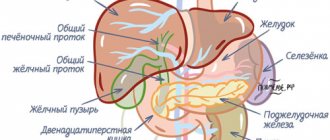Subtleties of the profession
An endoscopist is
an endoscopic doctor who examines patients and assesses their condition using optical equipment. Using an endoscope, a specialist can not only carry out diagnostics, but also therapy, and operate on certain types of organs (hollow and tubular).
The doctor has a wide range of responsibilities, including assessing the condition of the mucous membranes, detecting ulcers, bleeding, taking a biopsy, monitoring therapy and correcting pathology.
Endoscopist specializations
A priori, one specialist cannot endoscopically operate on all organs, so there are narrow-profile orientations:
- Bronchoscopists examine and treat the bronchial tree.
- Esophagogastroduodenoscopists examine and correct problems of the esophagus, duodenum and stomach.
- Intestioscopists examine and operate on the small intestine.
- Colonoscopists work with the colon.
- Endoscopists-gynecologists examine the organs of a woman’s reproductive system using gentle endoscopic methods.
- Endoscopists-urologists correct diseases of the urinary system.
- Endoscopists-andrologists treat the prostate and reproductive system of men.
- Angioscopists diagnose and eliminate vascular pathologies.
- Encephaloscopists examine the ventricles of the brain.
- Arthroscopists deal with joint pathologies.
- Otoscopists identify deformation of the external hearing aid.
Responsibilities
The main responsibilities of an endoscopist include the following activities:
- examining patients using special equipment and identifying diseases,
- carrying out medical procedures both independently and with other doctors,
- taking a biopsy and sending it for histology,
- monitoring the serviceability of endoscopic equipment,
- participation in consultations and examinations of temporary disability,
- traveling with medical teams to remote areas.
Requirements for an endoscopist
The most important requirements for a doctor with such qualifications are considered to be the following:
- higher education in a medical school;
- a valid certificate in the field of “Endoscopy”;
- knowledge and skills in conducting various types of examinations, including gastroscopy and colonoscopy;
- understanding of the principles of use of endoscopic ultrasonography in diagnosis;
- ability to work in specialized programs for medical institutions.
What is within the competence
The endoscopist performs the following medical procedures:
- diagnostics of the condition of internal organs, sizes of ulcers, erosions, neoplasms, their localization. Also, the endoscopist can determine the site of bleeding, which eliminates surgical intervention for diagnostic purposes;
- treatment - through an endoscope, the doctor can introduce medication into the affected area, the necessary instruments for the operation, and remove small tumors (most often these are polyps);
- monitoring the effectiveness of treatment;
- biopsy – through an endoscope, the affected tissues of internal organs are taken for histological examination.
The endoscopist transmits the data obtained during diagnostic studies to the primary attending physician.
Where to get training
In addition to higher education, there are a number of short-term training on the market, usually lasting from a week to a year.
The Medical University of Innovation and Development invites you to take distance courses for retraining or advanced training in the field of “Endoscopist” to obtain a diploma or state certificate. Training lasts from 16 to 2700 hours, depending on the program and your level of training.
The Interregional Academy of Additional Professional Education (MADPO) trains in the specialization “Endoscopy” and issues diplomas and certificates.
The Institute of Professional Education "IPO" invites you to take distance courses in the field of "Endoscopy" (there are options 256, 512 and 1024 academic hours) to receive a diploma or state-issued certificate. We have trained more than 8,000 graduates from almost 200 cities. You can undergo external training and receive interest-free installments.
When to contact an endoscopist
Patients are usually referred to an endoscopist for examination by doctors of other specialties (gastroenterologists, pulmonologists, urologists, gynecologists, etc.).
Indications for endoscopic examination are suspicions of:
- Inflammatory diseases of the gastrointestinal tract (gastritis, esophagitis), gastroesophageal reflux disease, narrowing of the esophagus, esophageal varices, Barrett's esophagus, hiatal hernia, peptic ulcer, cancer (gastroscopy is performed).
- Bronchial asthma, smoker's cough, atelectasis (collapse) of the lung, neoplasms in the trachea or bronchi or their abnormal structure. Frequent pneumonia is also a reason for bronchoscopy.
- Chronic cystitis, obstruction of the urethra, the presence of stones, polyps or tumors in the ureter, overactive bladder. Cystoscopy or urethroscopy is performed.
- Colposcopy is performed for precancerous and cancerous conditions of the vulva, vagina or cervix, as well as for the presence of genital warts.
- Crohn's disease, intestinal obstruction, ulcerative colitis, gastrointestinal bleeding, intestinal neoplasms, hemorrhoids or intestinal abnormalities. A colonoscopy or sigmoidoscopy is performed.
- Enlarged adenoids, velopharyngeal insufficiency, trauma to the maxillofacial area, sinusitis, deviated nasal septum or neoplasms in the nasopharynx (nasopharyngoscopy is performed).
- Hearing impairment, otomycosis, otosclerosis, neoplasms and damage to the auditory canal and eardrum. For such pathologies, otoscopy is performed.
- Tumor processes in the uterus, polyps and fibroids, adhesions or abnormal structure of the uterus, in case of miscarriage and uterine bleeding (hysteroscopy is performed).
Some endoscopic examinations combine diagnostic and therapeutic effects (identified stones are removed, stents are installed, etc.).
Such studies are indicated for patients who have:
- Jaundice, cholangitis, tumors of the gallbladder or bile duct, stagnation of bile due to the formation of stones. For these diseases, cholangioscopy is indicated. This study is also carried out for chronic pancreatitis and postcholecystectomy syndrome.
- Recurrent pleurisy, enlarged mediastinal nodes, pneumothorax and disseminated lesions of the lungs and pleura (thoracoscopy is indicated).
- “Acute abdomen”, suspicion of a closed abdominal injury, inflammation of the peritoneum, accumulation of fluid in the peritoneum or the presence of neoplasms in it. Laparoscopy is performed.
- Infectious endocarditis, embolism during stroke, transient ischemic attacks, acquired heart defects, aortic pathology and other heart pathologies that require clarification, transesophageal cardioscopy is indicated.
- Blood clots, atherosclerotic plaques, anastomosis between vessels or their granulomatous lesions (angioscopy is indicated).
- Damage to ligaments, menisci, synovium and articular cartilage. Arthroscopy is recommended.
- Severe traumatic brain injuries, hemorrhage into the ventricles of the brain, occlusive hydrops, cysts and tumors, congenital defects, ventriculitis. Ventriculoscopy is indicated.
In the presence of external fistulas connecting a hollow organ with the external environment and internal fistulas connecting internal organs, fistuloscopy is indicated.
In addition, diagnostic endoscopy of individual organs is performed when preparing patients for surgery, as well as in cases of cancer to exclude the development of metastases.
Features of an appointment with an endoscopist
An appointment with an endoscopist involves, first of all, questioning the patient regarding complaints regarding his well-being, as well as finding out the specific reasons and circumstances that contribute to his seeking medical help. Anamnesis (that is, a study of medical history) and examination are also carried out. After the initial consultation with the endoscopist, which consists of the listed points, this specialist decides what additional studies are needed to determine the full picture of the patient’s condition. After which, based on examination, research and analysis, the endoscopist determines the appropriate treatment for the patient.
An endoscopist surgeon is a specialist who combines two areas of medicine, namely surgery and endoscopy.
The essence of endoscopic surgery is to carry out surgical procedures (excision, removal of a tumor or affected area) with a mini-instrument extended from an endoscope located in the patient’s body.
An endoscopist surgeon also combines the qualifications of a diagnostic therapist. The advantages of this method are obvious:
- treatment time is reduced (diagnosis and surgery are possible in one session);
- the period of postoperative rehabilitation is reduced;
- injury to body tissue is minimized;
- reducing the time required to restore the functions of the operated organ;
- economic feasibility (due to savings due to a reduction in the hospital period);
- aesthetics (absence of scars or a small number of them).
The choice of the surgical method - traditional or endoscopic - always remains with the performer, the endoscopist surgeon. Only an endoscopist surgeon can determine the quality of a proposed endoscopic operation, guided by a list of contraindications (absolute and relative).
Also, before the operation, the endoscopist surgeon is obliged to:
- Examine the condition of the patient’s respiratory system;
- have an accurate idea of the size and location of the tumor (if the proposed operation is surgery to remove the tumor).
- peculiarities of the patient's constitution (obesity of 3 and 4 degrees are contraindications).
- find out about the presence of chronic diseases (a report from a cardiologist and an allergist is required to eliminate the risk for the patient).
The main quality of an endoscopist surgeon is the ability to correctly balance the benefits of the proposed operation and the risk of possible consequences. The many years of experience of our endoscopists can guarantee you truly effective assistance in treating your disease.
What research does
The endoscopist performs the following diagnostic procedures:
- gastroscopy;
- sigmoidoscopy;
- bronchoscopy;
- endoscopic examination of the ventricles of the brain;
- joint endoscopy;
- examination of the uterine cavity;
- endoscopy of the chambers of the heart;
- angioscopy;
- colposcopy;
- diagnostic laparoscopy;
- otoscopy;
- esophagogastroduodenoscopy;
- cystoscopy (examination of the bladder);
- urethral examination;
- examination and treatment of bile ducts.
It should be noted that in most cases, patients do not experience pain during this diagnostic procedure, since the mucous membrane does not have nerve endings.
— What would you say to a patient who has not yet come to you?
— Firstly, I would ask a question to those who need to conduct research, but are hesitant because of fear:
What are you afraid of - the procedure or the diagnosis?
When you answer this question, it will become clear to you that the procedure is a quick process, and can be completely painless in a situation of sedation, for example. And the result of the procedure is your knowledge, which will eliminate uncertainty, and you will know exactly what to do next. Most often we are dealing with functional disorders, which are much easier to treat than chronic diseases. We need to decide, get together and prepare ourselves for recovery. And we will do everything possible to ensure that the procedure and treatment are effective.










